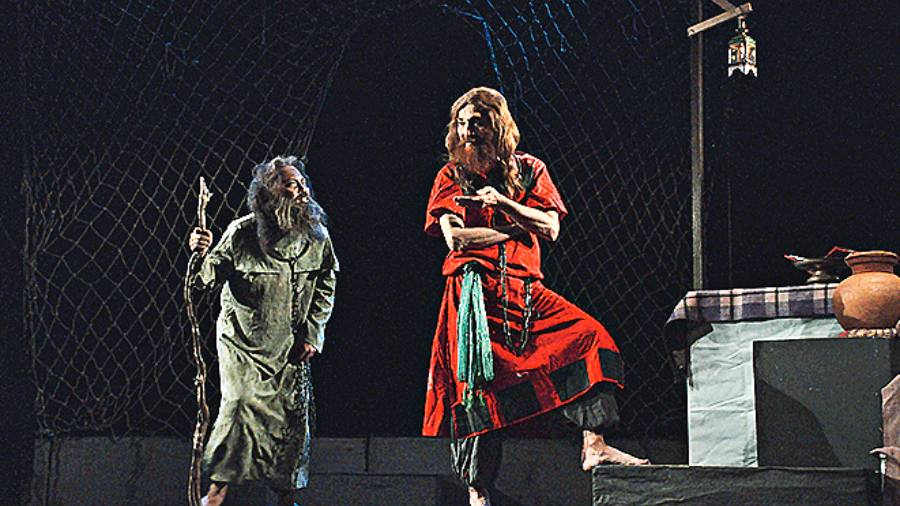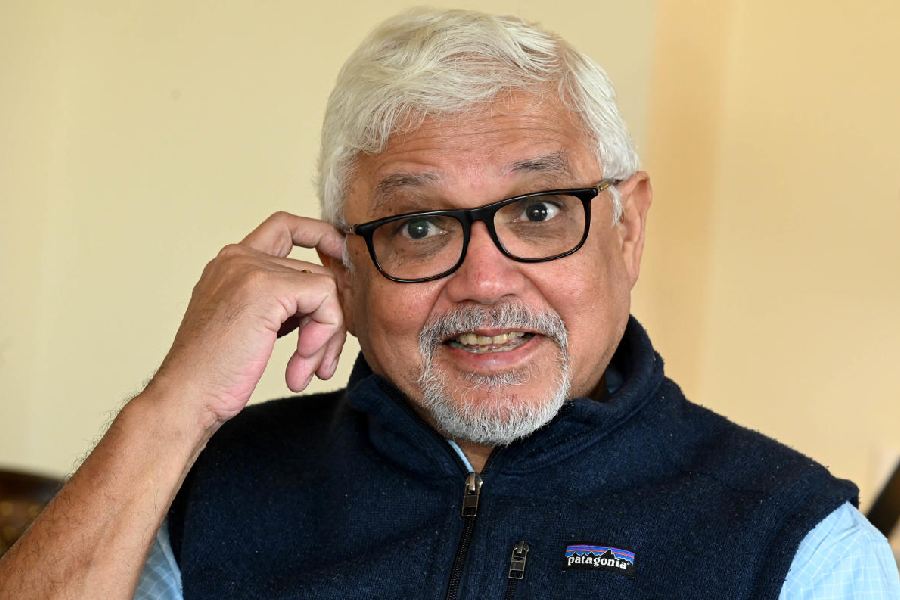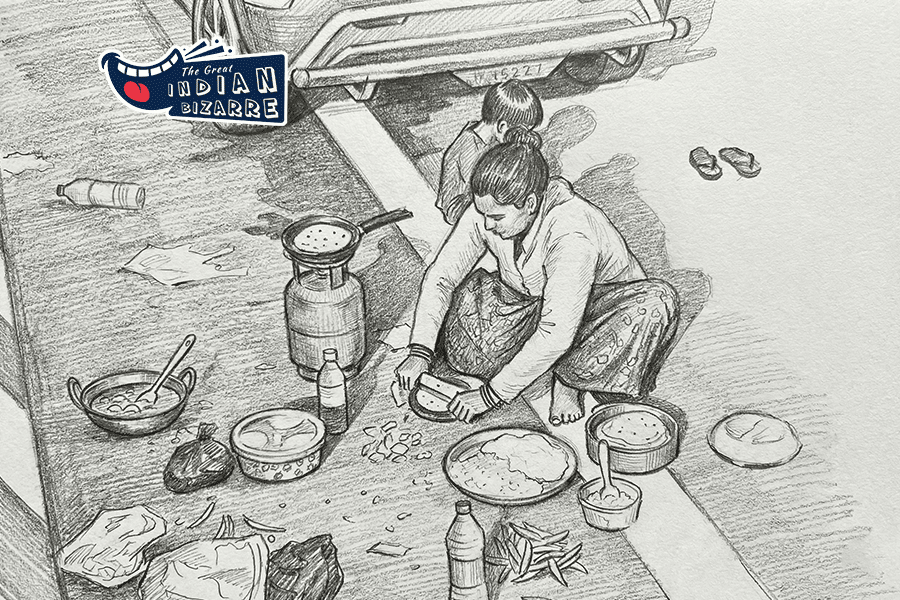Goutam Mukherjee, a legendary name when it comes to Bengali short-length drama practised in the suburbs of Calcutta, started making waves five decades back. Some of his productions, staged in makeshift proscenium spaces and elsewhere, inspired generations of actors and inspired conviction in left-leaning theatre. Times have changed. Ideological foundation does not seem essential to the ambit of ‘group theatre’. When Dakshineswar-based Souvik Sanskritik Chakra, the group Goutam leads, decided to revive two of its best-known productions at Minerva Theatre on December 27, this reviewer was thrilled. To his delight, the productions — Kenona Manush and Aabru — brought back memories of a pulsating theatre culture.
Penned by Amal Roy, among the leading proponents of agitprop theatre that swept West Bengal in the 1970s, Kenona Manush (picture) is a classic study in class conflict. Set in a totalitarian state reminiscent of George Orwell, it features two political prisoners serving life sentences. When we learn that one among them would be set free very soon, the play changes colour. How the State exercises coercive techniques to demolish the rebels, and how human beings are lured by the prospect of a ‘normal life’, drives Kenona Manush to a nerve-wrecking climax. There is a parable-like quality about this wordy drama that Goutam and Souvik Mukherjee — also the director — play out to precision, keeping a close watch on psychological consistency. The chorus, modelled upon the Greek standard, weaved a poetic maze that mostly complemented the lines of conflict.
Aabru was originally set in the turbulent 1970s. How the salaried middle class, serving the State interests, empathized with the Naxalites only to backstab them at crucial junctures formed the basis of this hard-hitting play by Bablu Mukherjee. An effortless Goutam plays a teacher with a Swadeshi background, who pines for his son who sacrificed his life for a revolutionary cause. The supporting cast, including an investigative journalist, failed to keep pace. Some judicious editing and a restrained light design can still do wonders to this slice of life drama.v











